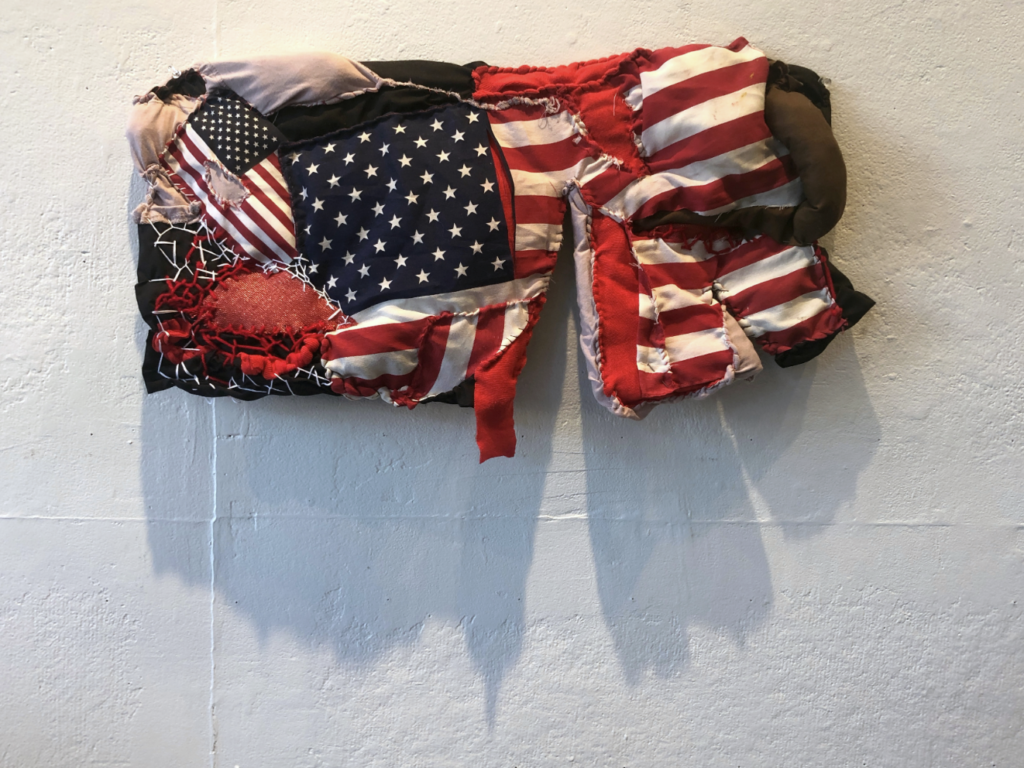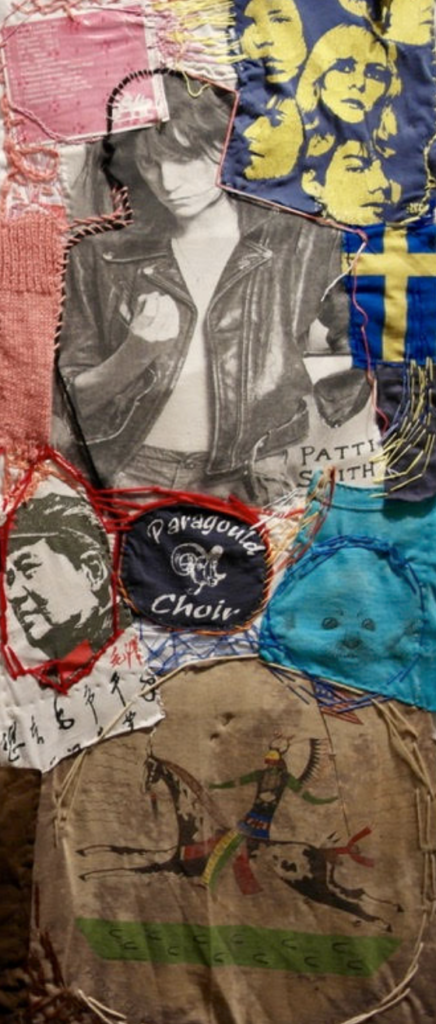By Moriah Gilbert, Gallery 263 Intern
Inspiration for art comes from anywhere and everywhere. Some of the most traumatic events in life have inspired some of the most meaningful art. This is certainly the case with artist-in-residence Jeffrey Nowlin.

In an interview, Jeffrey explained that he often draws inspiration for his work from feelings of anxiety and depression. Jeffrey’s process involves adding pieces to used stretcher frames to manipulate the shape. These structures serve as the backbones of his fiber sculptures. His fiber pieces jump off the canvas into a three-dimensional space. Branching into three-dimensional work makes his art more like an object than a painting. Fabric as a medium is important; Jeffrey deconstructs found objects to obtain fabric for his work. This act is a metaphor for reclaiming traumatic events and life experiences.
Everything someone has been through works together to result in where one is at the present moment; this is equally true of Jeffrey’s artworks. Most of his pieces are an exploration of trauma and its effects on the body. When something traumatic takes place, the mind can detach itself from the body to try to protect itself. One is present but mentally absent at the same time, which is why it is not uncommon that survivors of trauma can’t remember what happened. Jeffrey is very interested in the physical attributes of trauma, whether it is illness or a sense of disconnection from the body.

When he steps back from his pieces, he can’t help but feel the enjoyment and satisfaction from being able to create something “beautiful” out of scraps. He finds beauty in his artwork, but he also finds beauty in the process. His work is very time intensive and repetitious, but he says this just mimics how he thinks. In addition, the physical crafting of these pieces has been therapeutic for Jeffrey. He thinks a lot about things, and maybe these thoughts are woven into his art, too.
Recently Jeffrey has been researching the role of trauma in history, and how we see it in our everyday lives. He sees trauma all over: inherited trauma, things he sees on the news, and physical illness, which affects his family deeply.
Jeffrey is interested in how politics can affect us psychologically. He explains that everything we do is political and that we need to consider the implications. He says changes need to be made about how trauma is addressed. His works are physical representations of trauma, and he thinks they are steps in the right direction. People need to be able to talk about trauma in a meaningful way.
In his application to be a resident, he mentioned how hard it is to find space in Boston. He treasures the time and space he has at Gallery 263. The sense of community he has found has lifted his spirits, and he feels very fortunate to be supported by so many great people within our community.